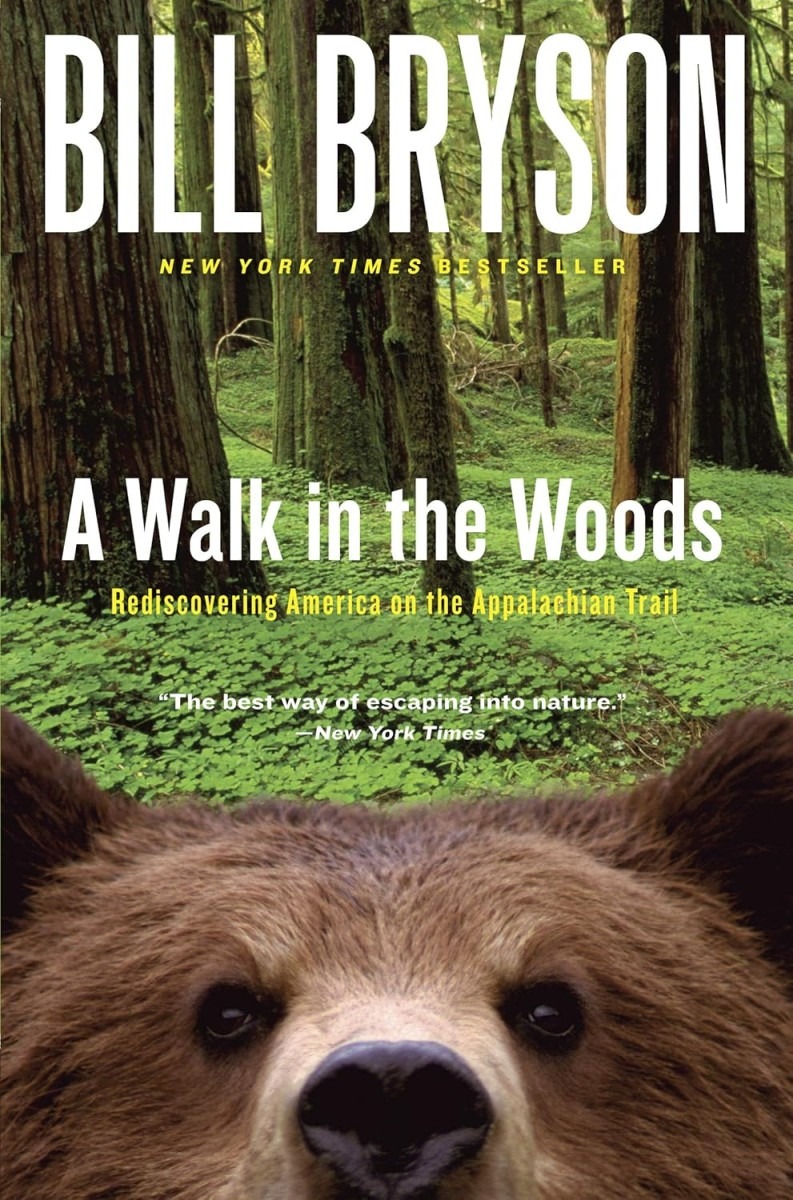Over the past two years I’ve been enjoying books about life in countryside villages, pre-industrial revolution. I asked ChatGPT about other books regarding the simplicity of nature and that is how I must have stumbled upon this book.
I had no intention to read a book about the Appalachian trail. I’m not interested in the hardships of hiking; I prefer something with history and the native Americans didn’t leave much to go on; it was exactly as I suspected, a long grimy, sweaty slog filled with bugs and other pests. I would have appreciated some descriptions of the serenity of remote wilderness and there was one, but primarily it was hardship.
This book was interesting enough for me to keep reading, and the hapless Katz provided some good laughs. My favorite quote from him is when some Christian hikers praise Jesus and without missing a beat he praises Allah for the mashed potatoes.
Anyway, here are my highlights and thoughts.
So woods are spooky. Quite apart from the thought that they may harbor wild beasts and armed, genetically challenged fellows named Zeke and Festus, there is something innately sinister about them, some ineffable thing that makes you sense an atmosphere of pregnant doom with every step and leaves you profoundly aware that you are out of your element and ought to keep your ears pricked. Though you tell yourself it’s preposterous, you can’t quite shake the feeling that you are being watched.
They say that the Eastern part of the USA was pretty much an unbroken canopy of trees before the settlers came and ravaged the wilderness. I wonder what life would have been like for those Native American tribes. Did they live primarily in forest or in clearings? I would imagine a life experience would be quite different for a culture whose whole life is spent in the woods.
The American woods have been unnerving people for 300 years. The inestimably priggish and tiresome Henry David Thoreau thought nature was splendid, splendid indeed, so long as he could stroll to town for cakes and barley wine, but when he experienced real wilderness, on a visit to Katahdin in 1846, he was unnerved to the core. This wasn’t the tame world of overgrown orchards and sun-dappled paths that passed for wilderness in suburban Concord, Massachusetts, but a forbidding, oppressive, primeval country that was “grim and wild … savage and dreary,” fit only for “men nearer of kin to the rocks and wild animals than we.” The experience left him, in the words of one biographer, “near hysterical.”
I wonder if this is true. Fascinating if so.
Life takes on a neat simplicity, too. Time ceases to have any meaning. When it is dark, you go to bed, and when it is light again you get up, and everything in between is just in between. It’s quite wonderful, really.
Life before electricity. I can’t help but imagine that the interruption of the natural rhythm of life, that which has persisted since the dawn of humanity, by electricity has contributed to making us all somewhat mentally ill.
They had of course been replaced by other things—a Mysterious Mansion, Hillbilly Golf, a Motion Master ride—and these in turn will no doubt be gone in another nine years, for that is the way of America.
America is certainly a tear down culture. The only time I feel as though we can find grand buildings from the past are in dead and dying small towns that seem to be frozen in time from the 1950s.
In America, alas, beauty has become something you drive to, and nature an either/or proposition—either you ruthlessly subjugate it, as at Tocks Dam and a million other places, or you deify it, treat it as something holy and remote, a thing apart, as along the Appalachian Trail.
